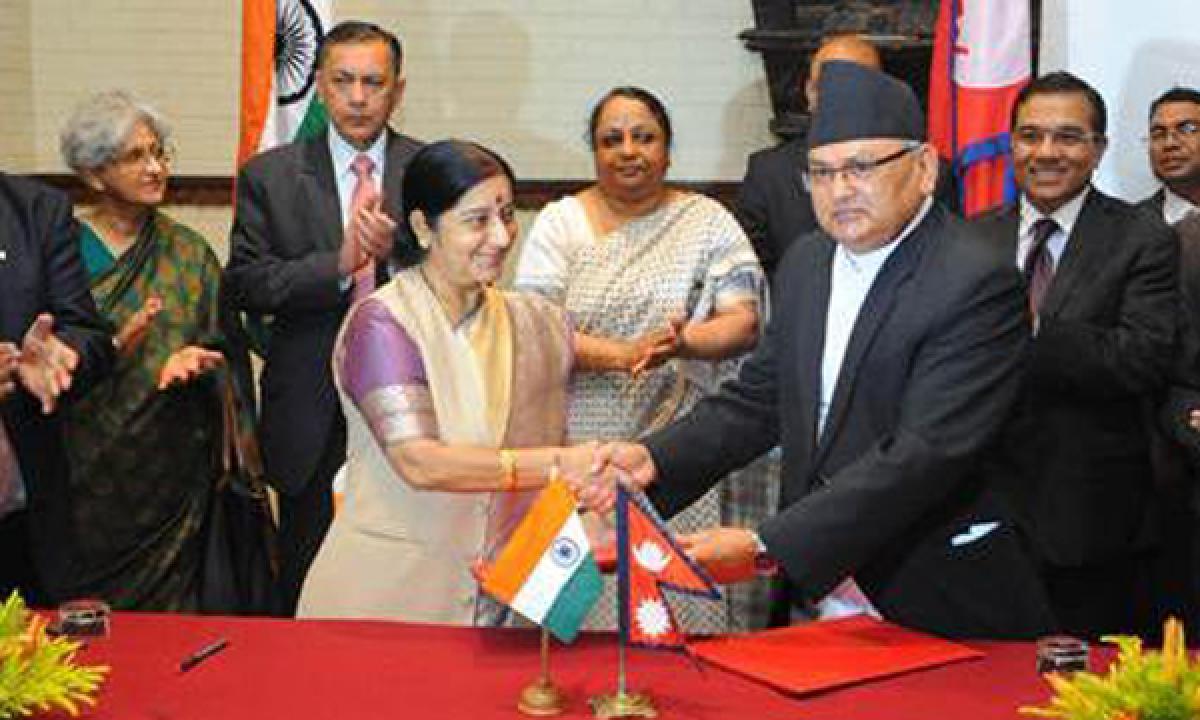Live
- It’s time to defeat betrayers: Revanth in Maharashtra
- Committees formed, assigned tasks
- Let law and order be in sole domain of union!
- Group-III exams off to a smooth start
- KTR invited as guest of honour at TiEcon Kerala 2024
- KTR gets his freedom in a deal done in Delhi: Bandi Sanjay
- Hyderabad Ready to Host FIFA Friendly Football Match Between India and Malaysia
- Tirumala Sees High Pilgrim Turnout
- AP Assembly to Discuss Grants and Elect Railway Committee Rep
- Former Brane employees pour out woes to minister
Just In

The fourth meeting of the India-Nepal Joint Commission, the top bilateral body at the Foreign Minister-level, will be held on October 26-27 in New Delhi, an official said on Wednesday. The Joint Commission meeting on October 27 will be followed by a Foreign Secretary-level meeting, Nepal\'s Ministry of Foreign Affairs said in a statement here.
Kathmandu:The fourth meeting of the India-Nepal Joint Commission, the top bilateral body at the Foreign Minister-level, will be held on October 26-27 in New Delhi, an official said on Wednesday.
The Joint Commission meeting on October 27 will be followed by a Foreign Secretary-level meeting, Nepal's Ministry of Foreign Affairs said in a statement here.
During the recent state visit of Prime Minister Pushpa Kamal Dahal 'Prachanda' to India, both sides had agreed to hold the meeting "at the earliest".
Foreign Minister Prakash Sharan Mahat and his Indian counterpart Sushma Swaraj will lead the respective delegations at the meeting that will review and assess all facets of bilateral relations and will give a direction to the future course, said the statement.
The meeting will also dwell upon a wide range of bilateral issues and try to find a way out, including expediting the India-funded projects and setting up of a joint mechanism at the government level to monitor progress of these projects in Nepal.
Besides, the meeting will also try to work out a time-bound plan to complete the pending projects, it said.
Both Prime Minister Narendra Modi and Premier Dahal had agreed to expedite the pending projects through a bilateral monitoring mechanism.
Earlier, the joint commission meeting was scheduled for August 20-22 in New Delhi, but it was cancelled after a change of guard in Kathmandu. The third meeting was held in Kathmandu in 2014 after a gap of 23 years.
The joint commission is a high-level mechanism that comprehensively aims to review India-Nepal relations in the areas of politics and security, trade and investment cooperation, water resources and power, connectivity, development assistance and education and culture.

© 2024 Hyderabad Media House Limited/The Hans India. All rights reserved. Powered by hocalwire.com







